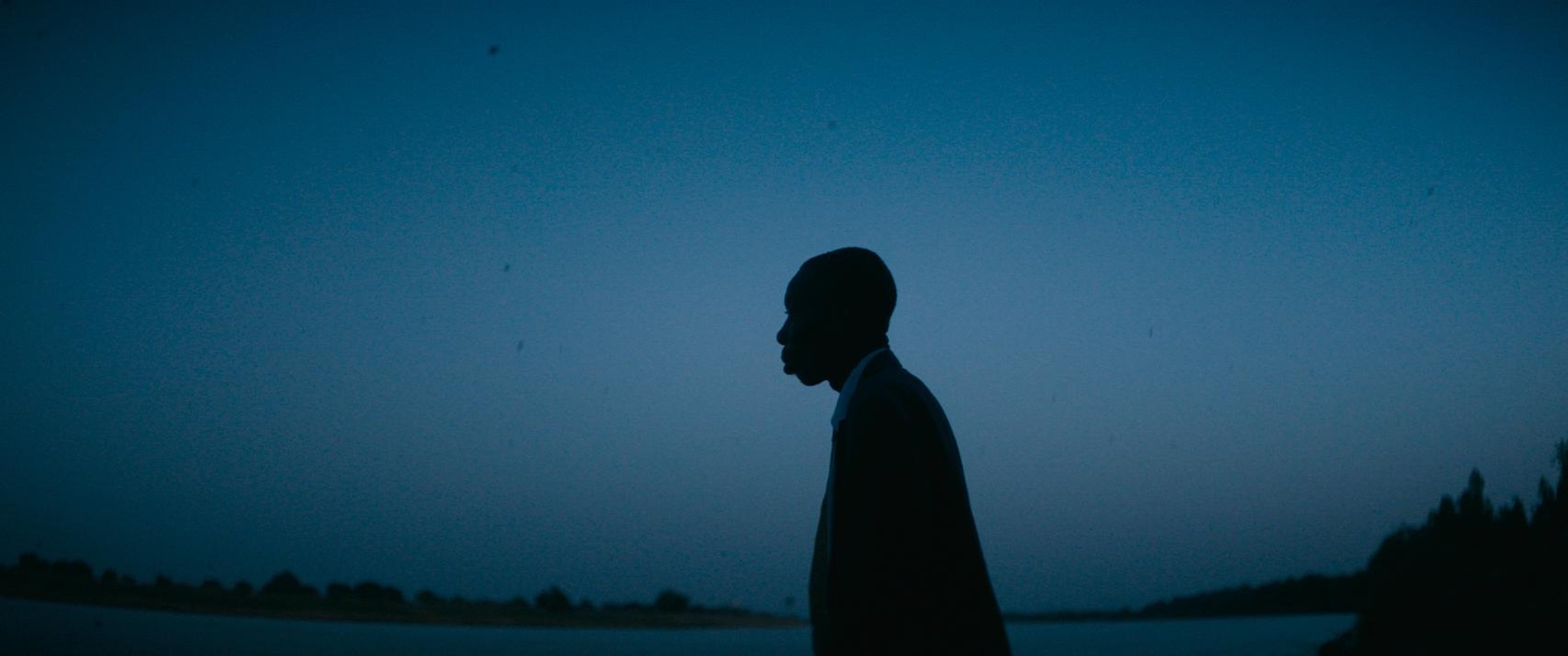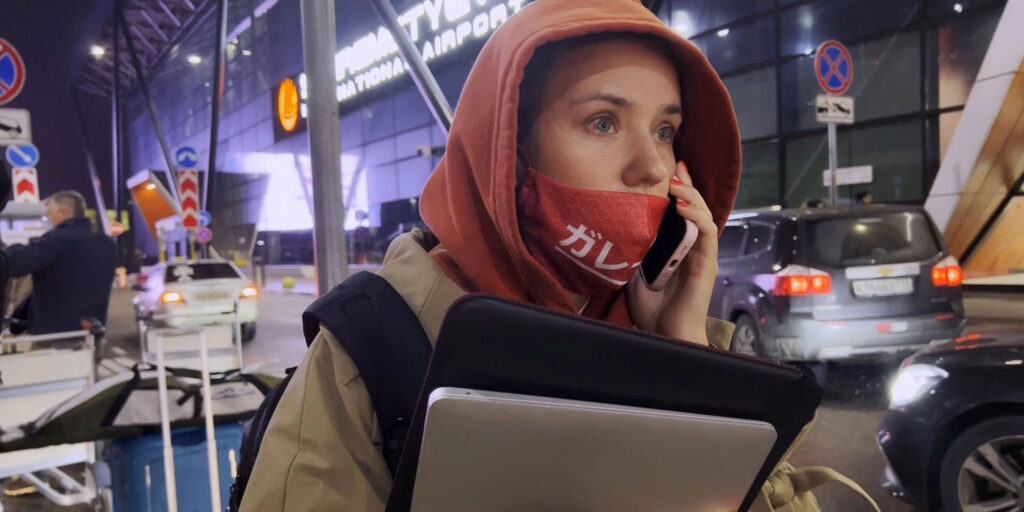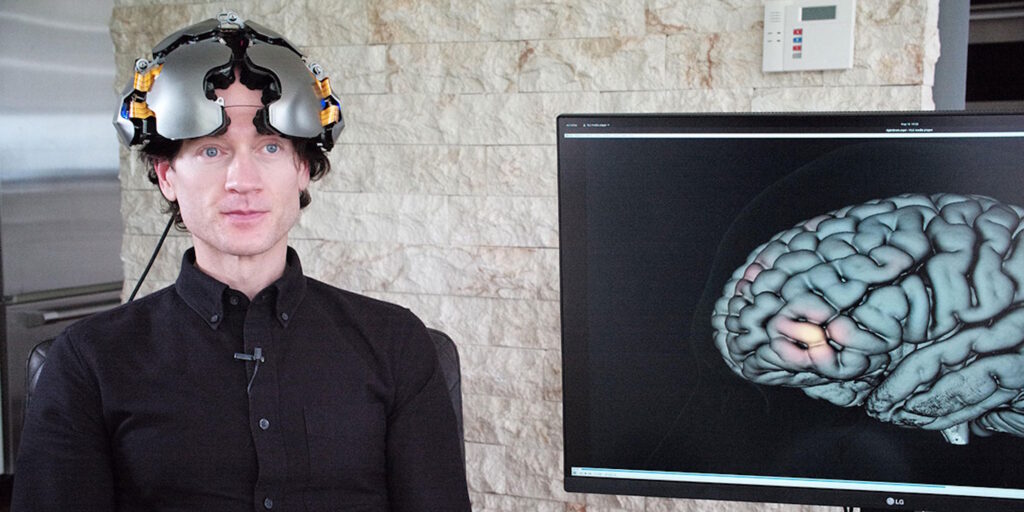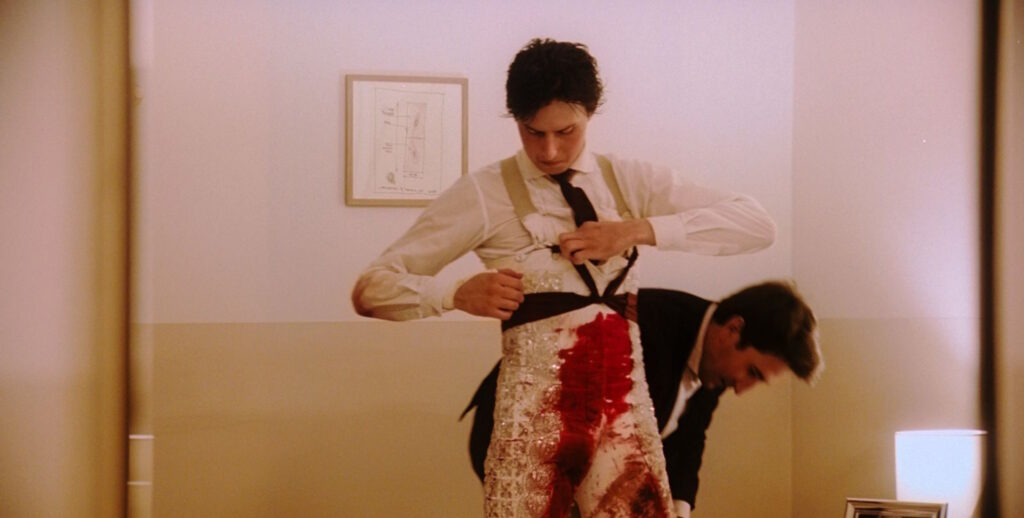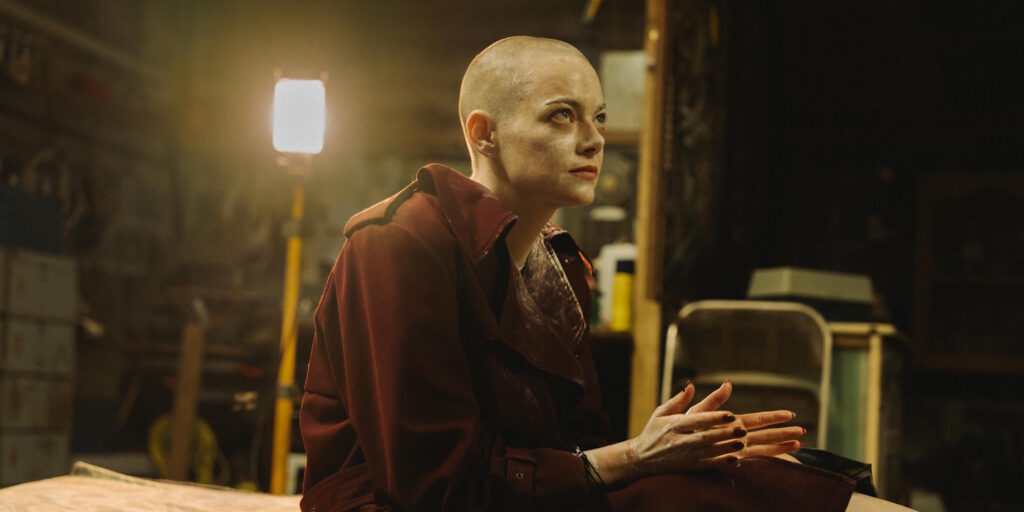Washington University’s African Film Festival returns for its 19th edition from March 28 – 30. This year, the fest’s three narrative features — Demba, Sadrack, and The Village Next to Paradise — serve as a moving triptych about family (of all kinds) and the strength that one can derive from these ties during times of struggle, even in the most hopeless of circumstances. Whether those tribulations might be grief, sickness, or financial strain, these three films exemplify the power of genuine connection — a valuable lesson for the supposed staunch individualists in our increasingly fragmented society.
Demba (Ben Mahmoud Mbow) is having a hard time. His wife, Awa (Awa Djiga Kané), died one year, six months, and some days ago. Lately, it feels like he’s the only one counting. Family and friends plead with him to move on and get his life together, but the agony is just too great. Even his own son, Bajjo (Mamadou Sylla) — a college dropout still living under Demba’s rented roof — doesn’t seem to give her much thought anymore. Worse yet, the desk job he’s held at city hall for nearly 30 years is under threat of being deemed redundant in the ever-encroaching digital age. His only respite from the weight of daily life is the occasional ice-cream bar, but even that is not without pain: The cold temperatures hurt what remains of his teeth. This is life as a widower, and it isn’t getting any easier.
The gravity of the loss is heavy, and there’s no question it’s bogging Demba down. Grief is one of life’s ultimate struggles, and an internal one at that. And, just as there’s no straightforward way to get through it, there’s no simple method to depict it on-screen. Rather than rely on voiceover narration or obvious monologues to reveal Demba’s feelings, Dia instead utilizes experimental techniques: playing with focus, shifting points-of-view, conflicting shot-reverse-shots. These fragments are pieced together to reveal the mosaic of Demba’s broken heart and mind. Although writer-director Mamadou Dia’s stylized take on the grieving process can’t help but keep us observers at a distance, Demba is by no means an emotionless work.
Such an arm’s-length approach to its subject matter could have easily left the viewer feeling cold and detached. Yet Demba is as mesmerizingly expressive as it is deeply impactful. The remove is the key: Set in the director’s northern Senegalese hometown with a cast filled out by fellow locals, the film’s roots run deep, giving a lived-in sense to this tight-knit community that only makes Demba’s reputation as a social outcast that much more heart-rending. It’s not easy to watch as he trudges through his days, consistently failing to form (or, in the case of his son, restore) meaningful connections with those closest to him. That’s not to suggest it isn’t a rewarding experience, however: As Demba finds healing, the audience finds hope.
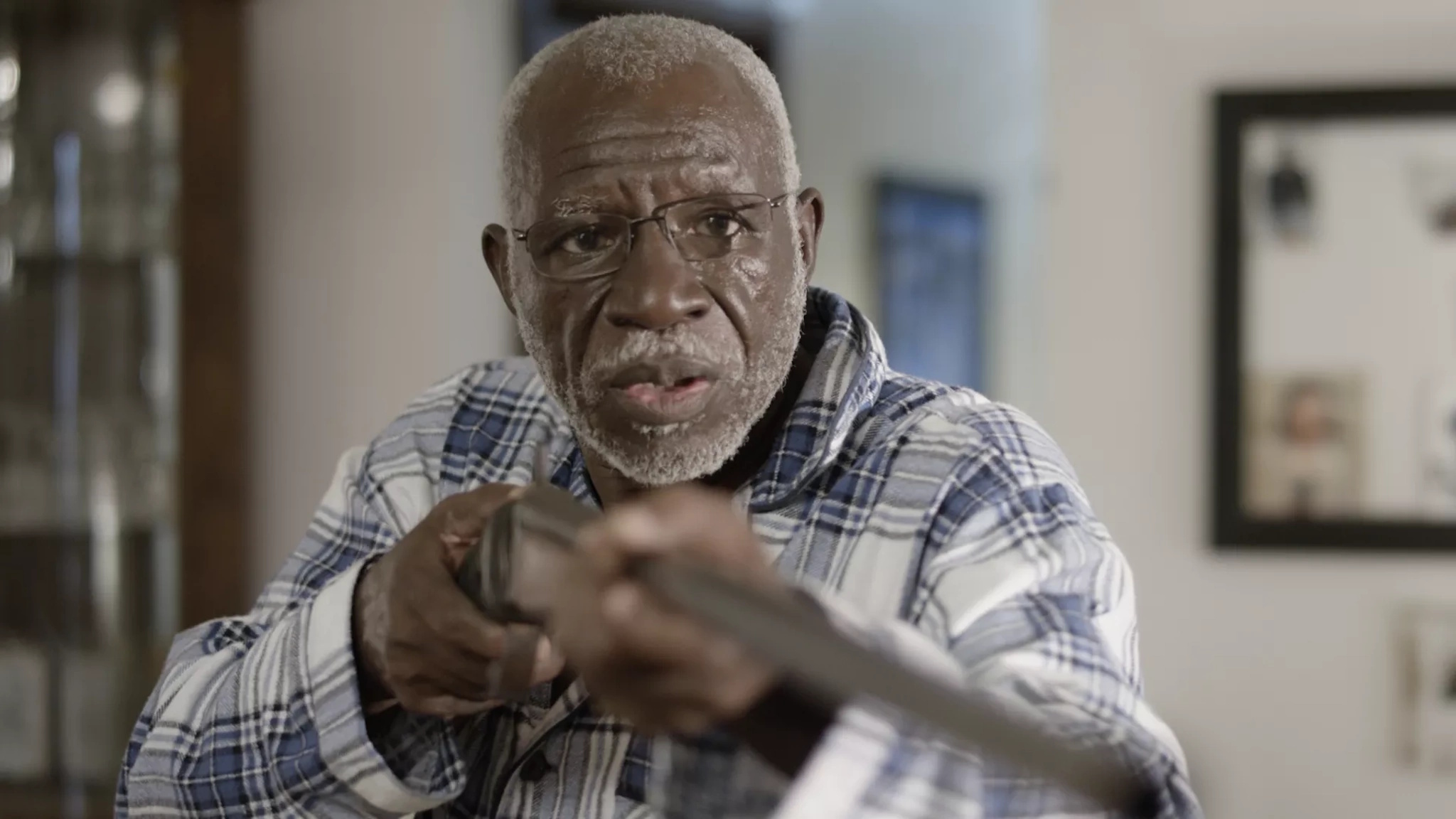
Like Demba, Bayo (Gustave Sorgho) is also a lonely widower. How or why he came to be one, though, he couldn’t tell you. His memory isn’t what it used to be, and what remains can’t be trusted. Lately, not even pictures are a reliable means to jog his recollections. Now in his 70s and clearly suffering from early signs of Alzheimer’s, Bayo and his adult son, Franck (Guy Francis Tami Yoba), have to figure out a way to make this new reality make more sense. That’s when Franck encounters Rachel (Hortavie Mpondo): a kind young woman fighting an inner battle of her own. Although outwardly she’s in need of a job, the deeper issue is the kidney failure she’s wrestling with in private.
If it sounds like there’s a lot going on in director Narcisse Wandji’s Sadrack, fear not: Co-written with Noémie de Lapparent, Wandji’s film successfully juggles its trio of characters with the confidence of a much larger production. Bayo and Rachel’s relationship is the highlight: first contentious, then professional, and later something profoundly (and, if it even needs to be said, platonically) healing for them both in ways neither could have expected. American audiences have seen dramas of this ilk before, but what sets it apart is its uniquely anti-Western approach to medicine.
Movies about memory loss in the elderly are almost exclusively about the United States or the United Kingdom’s healthcare systems. Where Sadrack stands apart from its English-language predecessors (beyond the overt difference in geography) is in its depiction of Bayo’s prognosis. Even in sickness, there’s an understanding that caregiver and care-receiver are on an even playing field — and that the roles can be interchangeable. Nobody is positioned as a burden, and no one is depicted as lesser due to their illness. Everyone takes care of everyone, obligation in solidum. This dynamic, combined with the skill of actors Sorgho and Mpondo, makes Bayo and Rachel’s relationship — and, by extension, the film at large — that much more meaningful.
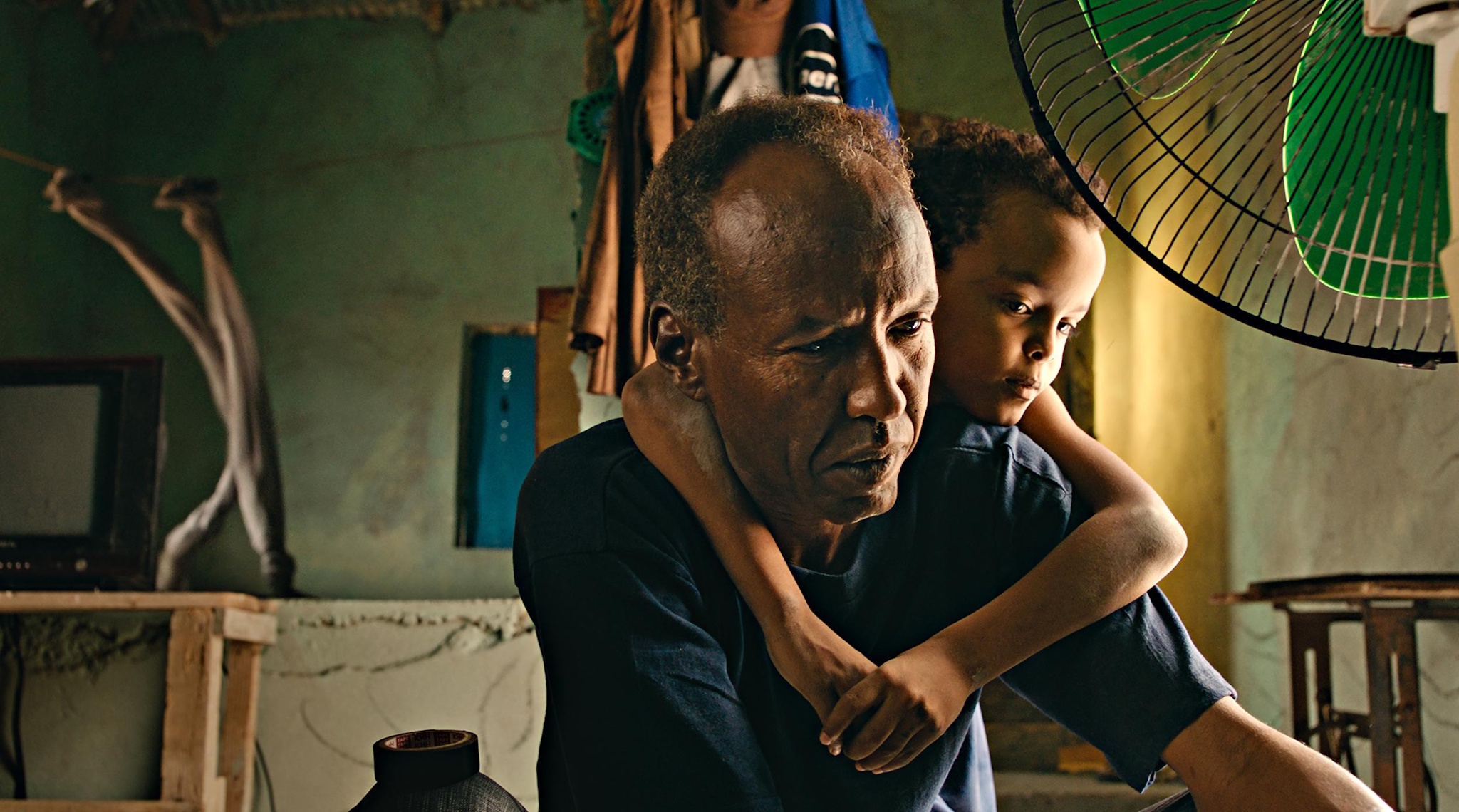
Also concerned with fathers and sons, writer-director Mo Harawe’s debut feature, The Village Next to Paradise, explores the hardships of daily life in rural Somalia for Mamargrade (Ahmed Ali Farah) and his only child, Cigaal (Ahmed Mohamud Saleban). Dependable work is scarce here, quality schooling even more so. Even when the climate isn’t wreaking havoc on their home, the constant threat of American drone strikes weighs heavily, robbing them of ever truly knowing peace. Still, as any good parent would, Mamargrade picks up any odd jobs he can find, attempting to provide Cigaal with a decent childhood (despite the world’s best efforts to thwart him).
Cohabitating in their already cramped abode is Mamargrade’s sister, Araweelo (Anab Ahmed Ibrahim), a recently divorced woman dreaming of a new beginning in the form of her very own clothing shop. Like her brother, Araweelo is just trying to make the best of the bad hand she’s been dealt (“divorced and childless” being no better a fate than “unemployed single parent”). There’s opportunity for all of them in the city — career opportunities for Mamargrade, a boarding school for Cigaal, retail space and loan services for Araweelo — but life outside Paradise Village comes with extra costs that none can afford. As in life when at a standstill, Harawe’s film takes an unhurried approach to its 134 minutes, allowing its familial trio the freedom to exist within these uncertainties.
As the first Somali film to show at Cannes — and, if we’re being honest, the first Somali film many audiences will have likely ever encountered — The Village Next to Paradise has the unique privilege of setting the stage for an entire nation’s filmic presence. (No pressure.) Harawe’s use of nonprofessional performers, on-location shoots, and a narrative unmoored from plot conventions gives the film and its characters room to breathe, allowing viewers to know them better in the process. Come trials and tribulations, crushing disappointments and moments of hope, Mamargrade, Cigaal, and Araweelo’s stories are granted a three-dimensionality so often lost in the shuffle of narrative technique. It’s both a gratifying work from a rising talent and a hopeful introduction to a brand-new form of regional cinema.
The Village Next to Paradise screens Friday, Mar. 28 with the short film “Nous les Griots”. Demba screens Saturday, Mar. 29 with the short film “The Incredible Sensational Fiancee of Seyi Ajayi”. Sadrack screens Sunday, Mar. 30 with the short film “Mangata”. All presentations will begin at 7 p.m. at Washington University’s Brown Hall, Room 100. Admission is free.
The 2025 African Film Festival runs Mar. 28 – 30. More information, including a complete schedule of events, is available here.
